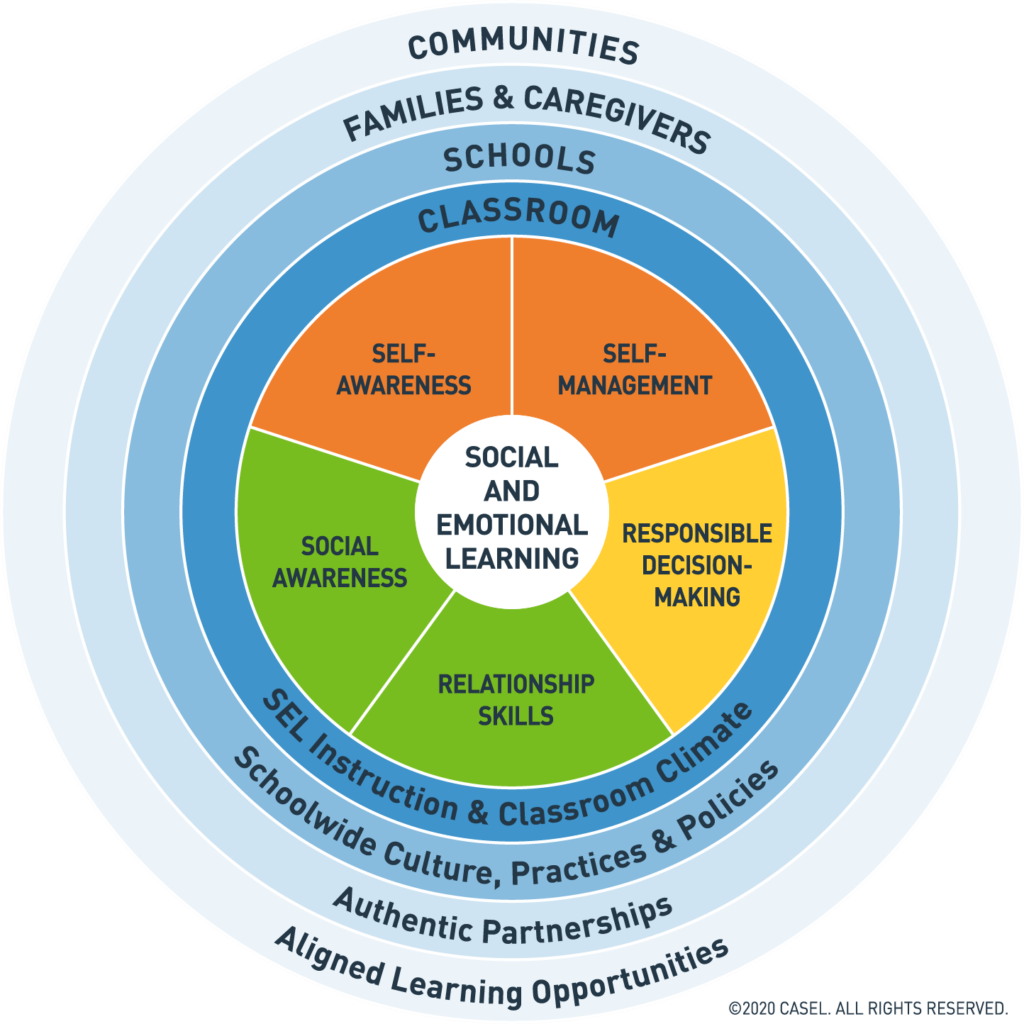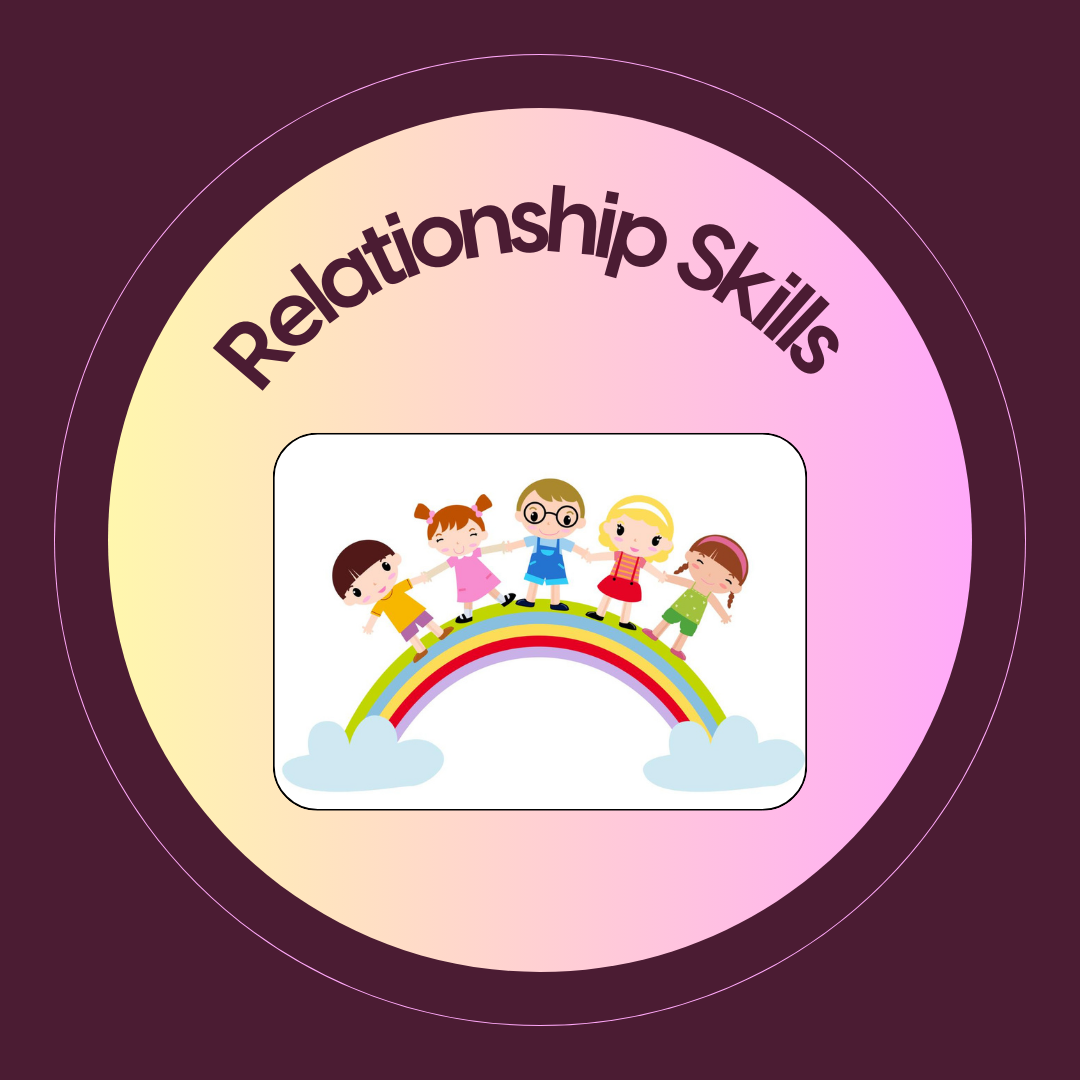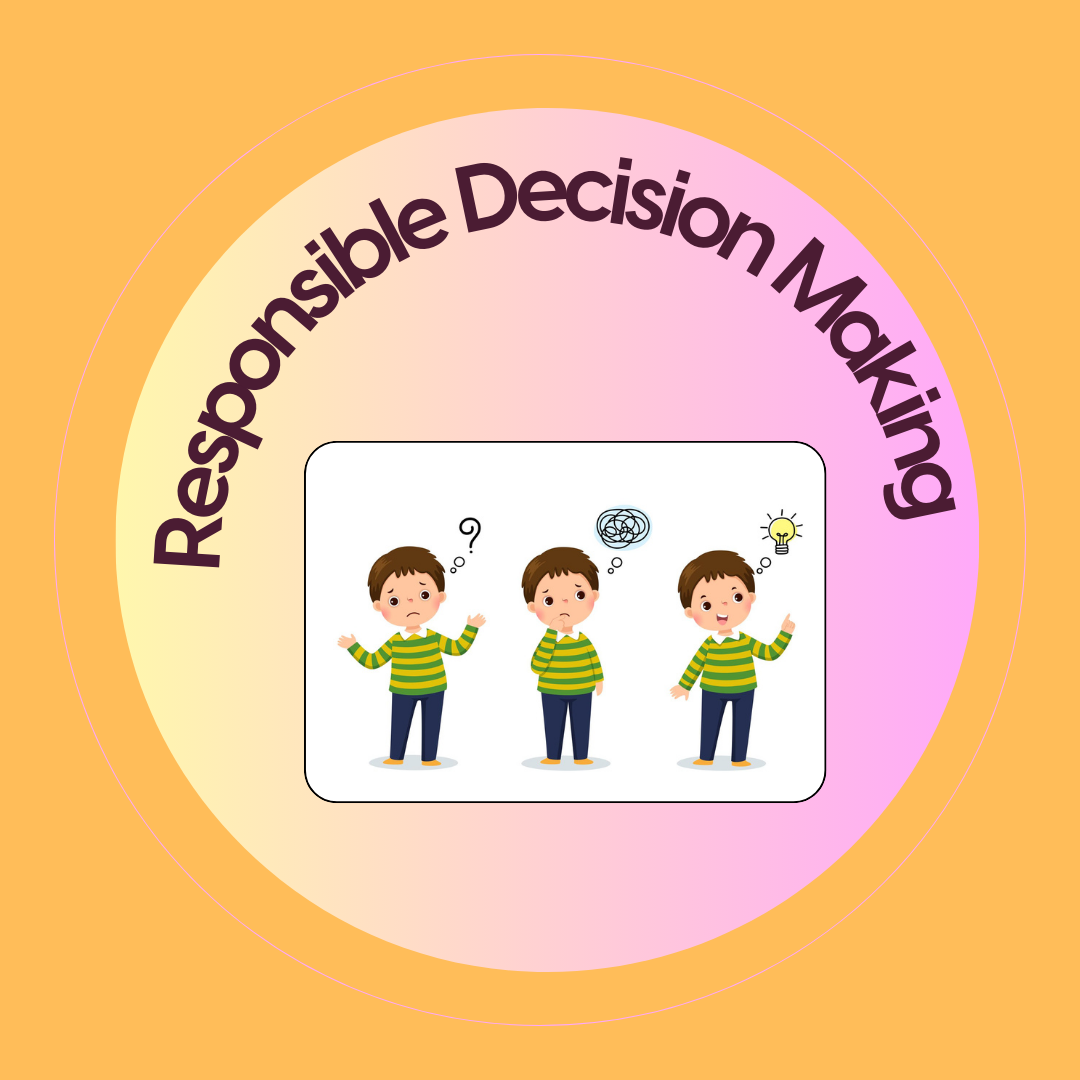What is Social Emotional Learning (SEL)?
-
Social emotional learning (SEL) is a methodology that helps students of all ages to better comprehend their emotions, to feel those emotions fully, and demonstrate empathy for others.
The following descriptions of Social and Emotional Learning (SEL) are from CASEL (collaborative for Social and Emotional Learning). They address five broad, interrelated areas of competence and provide examples for each: self-awareness, self-management, social awareness, relationship skills, and responsible decision-making
Benefits of SEL
-
- We know from a large body of research on SEL that high-quality SEL programming leads to improved academic performance, decreases in anxiety and behavior issues, among other benefits.
- We also know from research beyond the traditional SEL field that there are additional insights to be gained that are relevant to SEL.
Collaborative for Academic, Social, and Emotional Learning (CASEL) Framework
 The Fullerton School District uses the framework developed by the Collaborative for Academic, Social, and Emotional Learning (CASEL) as a foundation for Social-Emotional Learning. CASEL is a trusted source for knowledge about high-quality, evidence-based social-emotional learning (SEL).
The Fullerton School District uses the framework developed by the Collaborative for Academic, Social, and Emotional Learning (CASEL) as a foundation for Social-Emotional Learning. CASEL is a trusted source for knowledge about high-quality, evidence-based social-emotional learning (SEL).
CASEL’s SEL framework fosters knowledge, skills, and attitudes across five areas of competence and multiple key settings to establish equitable learning environments that advance students’ learning and development.



